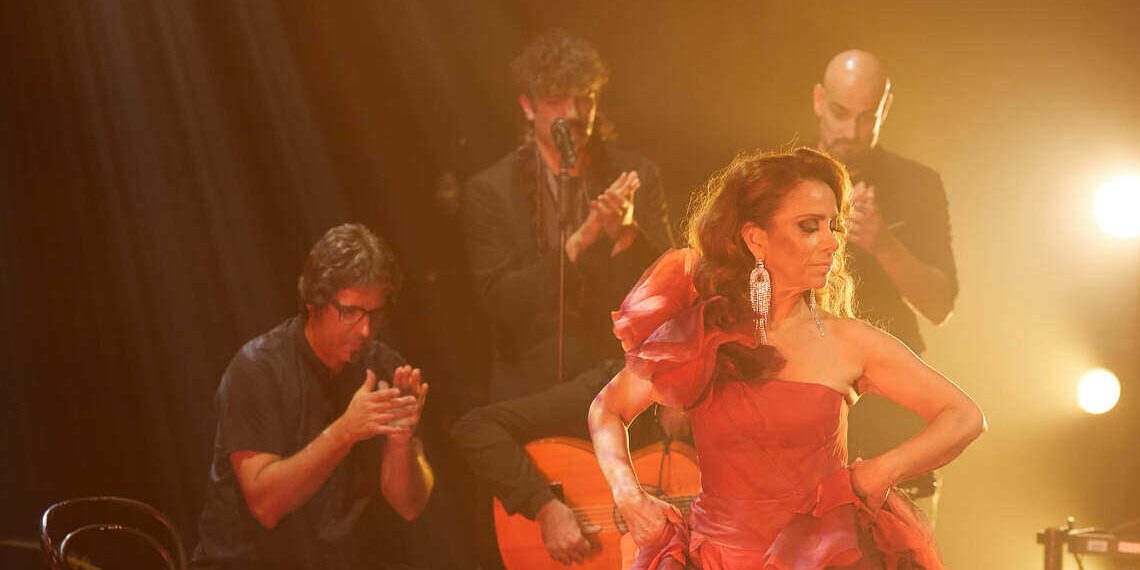This is a show of multiple halves: the understated and the overly extravagant; the band and the star; the flamenco and the jazz (just about).
It seems a rather shallow definition of jazz to only explore its place within French music. With the fire of flamenco, I was expecting it to be met by jazz improvisation but, instead, Karen Ruimy draws a line between the two genres. I would almost argue that the jazz element of this production is near obsolete; it is less ‘Jazz Meets Flamenco’, and more flamenco gets interrupted by a Ruimy ballad.
That being said, on the night, this sway towards flamenco is without a doubt the salvation of the show.
The intention of the performance is to promote Ruimy’s latest album, but I am not sure this is achieved on the evening. The opening number ‘Black Coffee’ sees two dancers navigate a borderline contemporary routine, in a space not large enough for them to confidently perform. Whilst there are flashes of performative and technical brilliance here, through no fault of their own, the dancing does not put the audience at ease. At times, the choreography is hesitant – whether that be to routine knowledge or spatial restrictions is unclear. The contemporary infusion also does not match the narrative of the songs, making the whole inclusion feel a little unnecessary. Couple this with a lacklustre vocal performance and a dress suitable for Strictly Come Dancing (against a sea of simplistic black clothing), the opening number is overall a little jarring.
One consistent area of brilliance however is the music – it is the true star of the show as, in my opinion, it should be. The band of musicians are absolutely sensational, from the backing vocalists, through to the jazz musicians, through to the corner of Spanish guitarists. Their collective energy is unbeatable and their genuine love for the music they create is not only palpable, but infectious. The beat, the atmosphere and the energy is created by their hands and I cannot commend their talents, both individually and in unison, highly enough.
I have to pay particular credit to the flamenco sections, accompanied by the four person Spanish band. Having only heard Spanish music over CD before, it is an incredible sight to watch the vocal skill of Francisco Blanco and the guitar skill of Jose Almarcha and Giorgio Serci on the evening. Francisco, in particular, is a standout performer, pulling off highly technical vocalisations with ease. The flamenco dancer, Francisco Hidalgo, shines in his moments on stage, perfectly encapsulating the staccato drama of flamenco, swiftly followed by sultry slowness between each phrase. It is a masterclass in Spanish art, and a joy to see Karen Ruimy perform alongside them.
Overall, I think the understanding of greatness is a little off centre here. Flashy costumes, sequins and feather boas do not make this performance, rather the understated and honest collection of musicians do.

